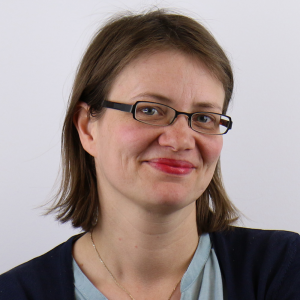
Dr. Helena Jambor is science writer at the university hospital of the Technical University in Dresden, Germany. Besides allowing her to learn about medical research, the work allows her to spend much of her time with figures and data visualization (DataViz).
Helena teaches DataViz in talks, blogs, and – hopefully soon – her book. And she offers consulting, too. Visual communication surrounds us everywhere in our modern lives. Arrows point the way, pictographs help us navigate public transport, logos communicate the brands’ preferred image, etc. Visualizations are also key to allow society to understand scientific research findings. To communicate their scientific findings to the public, and to engage in dialogue, scientists must learn to produce visualizations that are understandable. This applies when communicating to journalists, teachers, and politicians, but also within the scientific community.
During her curation at @sfprocur, Helena wants to convey how scientists use DataViz 1) to unambiguously communicate data within the scientific community; 2) to handle bigger and bigger data sets that require effective visualizations to be analysed; 3) to engage with society about their findings. She would like to initiate a discussion about a DataViz curriculum and spark interest in this important topic.
background
As a teenager, Helena loved design, art, and science. She decided to study biology and became an RNA scientists in Berlin and Cambridge/UK, Heidelberg, and Dresden. Her biggest insight: many RNAs sit at specific sites in cells to produce proteins locally.
Her education and early career was mostly a straight path: studies, PhD and postdoc. But, towards the end of her postdoctoral work, Helena re-discovered her love for design and merged it with her work with scientific data, sparking her passion for data visualization.